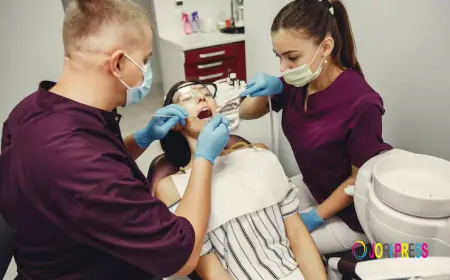Goals of Psychotherapy: A Journey Through Different Life Stages

Psychotherapy is often described as a journey, one that evolves as individuals move through different phases of life. What a child may need from therapy is very different from the objectives of an older adult. Yet, across all life stages, the goals of psychotherapy remain centered on healing, growth, and emotional well-being. By tailoring therapy objectives to each age group, therapists ensure that individuals receive support that truly meets their unique challenges.
Why Goals Are Essential in Psychotherapy
The journey of therapy can feel overwhelming if there is no direction. This is why therapists and clients work together to define therapy objectives that provide:
-
Clarity: A clear sense of purpose for each session.
-
Motivation: Encouragement to continue even when therapy feels challenging.
-
Measurement: A way to track progress over time.
-
Personalization: Goals that reflect the client’s stage of life and emotional needs.
With this roadmap in place, psychotherapy becomes a structured yet flexible process of transformation.
Goals of Psychotherapy in Childhood
Childhood is a period of rapid growth, but it can also bring emotional struggles that children may not know how to express. Therapy goals at this stage often include:
1. Emotional Expression
Teaching children to identify and communicate their feelings in words rather than through disruptive behaviors.
2. Building Self-Esteem
Helping children overcome fears, insecurities, or learning difficulties that affect confidence.
3. Strengthening Family Connections
Family sessions, sometimes combined with relationship therapy, allow parents and children to understand each other better and develop healthier communication patterns.
4. Social Adjustment
Supporting children in coping with peer pressure, bullying, or academic stress.
Goals of Psychotherapy in Adolescence
The teenage years are marked by identity formation, independence, and emotional highs and lows. Therapy during adolescence often focuses on:
1. Identity Exploration
Helping teenagers understand who they are outside of social pressures.
2. Managing Anxiety and Stress
Providing coping strategies to deal with academic, social, and family challenges.
3. Healthy Relationship Development
Encouraging teens to form friendships and connections built on respect and trust.
4. Decision-Making Skills
Empowering young people to make thoughtful, healthy choices.
Goals of Psychotherapy in Young Adulthood
As young adults navigate careers, relationships, and independence, their therapy goals often focus on stability and self-discovery.
1. Career and Life Direction
Therapy can help individuals identify passions, strengths, and goals for their future.
2. Emotional Regulation
Learning to manage stress, anxiety, and depressive symptoms that may arise from new responsibilities.
3. Relationship Skills
Young adults often seek therapy to develop strong, healthy bonds with romantic partners, family, and friends.
4. Healing from Past Trauma
Processing childhood wounds or unresolved experiences that may still impact current behaviors.
Goals of Psychotherapy in Adulthood
Adults frequently seek therapy when faced with relationship challenges, family responsibilities, or personal struggles. At this stage, psychotherapy goals often include:
1. Strengthening Communication
Adults in partnerships or marriages often aim to improve listening and conflict resolution skills.
2. Work-Life Balance
Therapy can help individuals find healthier ways to manage career demands and personal life.
3. Parenting Support
Parents use therapy to better understand their children and to align on parenting strategies.
4. Dealing with Stress and Burnout
Adults benefit from learning coping tools to manage stress before it leads to more serious mental health concerns.
Goals of Psychotherapy in Older Adulthood
In later life, psychotherapy goals often shift toward reflection, acceptance, and coping with transitions.
1. Processing Grief and Loss
Older adults may use therapy to work through the pain of losing loved ones.
2. Coping with Life Transitions
Retirement, health concerns, or role changes can bring challenges that therapy helps address.
3. Maintaining Emotional Health
Therapy offers tools to reduce loneliness, depression, or anxiety in older age.
4. Finding Meaning and Legacy
One of the most profound goals of psychotherapy in this stage is helping individuals reflect on their life with a sense of peace and fulfillment.
Universal Benefits of Psychotherapy
Although goals differ across life stages, the benefits of psychotherapy remain consistent:
-
Improved self-awareness and emotional regulation.
-
Stronger communication and relationships.
-
Greater resilience in facing stress and challenges.
-
Healing from trauma and past experiences.
-
Growth toward living a more authentic and meaningful life.
Conclusion
The goals of psychotherapy evolve as people move through different phases of life. For children, the focus may be on emotional expression and family bonds. Teenagers benefit from identity exploration and coping with stress. Young adults often focus on building careers and relationships, while older adults seek healing, acceptance, and meaning. Whether through individual sessions or approaches like relationship therapy, psychotherapy offers guidance tailored to each stage of life.
Ultimately, therapy is not just about symptom relief—it is a lifelong journey toward healing, growth, and fulfillment.
What's Your Reaction?
 Like
0
Like
0
 Dislike
0
Dislike
0
 Love
0
Love
0
 Funny
0
Funny
0
 Angry
0
Angry
0
 Sad
0
Sad
0
 Wow
0
Wow
0

















































